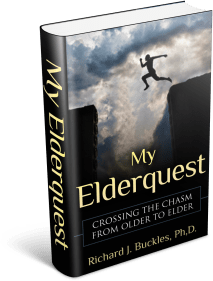About
Dr. Dick Buckles
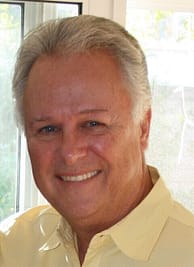
I’m Dr. Dick Buckles, Business Psychologist and Certified Life Transitions Coach and Change Management Consultant.
I specialize in helping people navigate difficult life changes such as how to prepare to make the transition from work to retirement.
I started this site because I wanted to provide support to those who wish to join us on this path to aging and eldering. I provide resources that will help you maintain your physical, mental, and social development as you age.
We know that certain beliefs and mindsets can limit your experience of aging. But if you’re willing to focus on improvement with intention, you can discover ways to shape a positive trajectory of your life into retirement and beyond.
My mission is to focus on the positive aspects of aging by sharing resources, experiences, ideas, and answers to questions about what life is like as we age.
Aging itself can be a wonderful journey of self-discovery - this is due to the fact that we’re living in what’s now being called the "Longevity Era." A time where life expectancy of 20-25 extra years beyond retirement is possible.
Here are some things about me:
I mention all this just to let you know that, when I talk about aging and making the transition to retirement, I do so from a place of having many of the same life experiences that you might also be having.
I'm the Founder of Bianetics, LLC, a consulting and life transitions coaching firm, and the author of a new book about my own transition to elderhood entitled THE ELDERQUEST: CROSSING THE CHASM FROM OLDER TO ELDER.
I've been a Business Psychologist for over 50+ years and I specialize in helping people prepare for difficult transitions in life. In particular, the transition from work to retirement. My focus is on people who are between the ages of 45-60+ who may be experiencing the usual fears, uncertainties, and doubts about retiring in the next 5-15 years.
Throughout my career, I've helped people and organizations build their competencies and capabilities in the areas of personal effectiveness and self-esteem. I also assist businesses in improving organizational effectiveness, with particular emphasis on individual assessments, culture change, innovation, leadership development and transitional coaching. Transitional coaching involves helping people go from work to retirement while searching for more positive ways to grow and develop the skills and positive attitudes associated with living a more fulfilling, happy and meaningful life as we age.
Think about this. The average age for retirement today is 63 years old. But, suppose you live to be 85? Then the question becomes, how will you deal with those extra years? How will you best prepare to live out those extra years of your life? What will your place in the world be? What does the future hold for you? These are the deep questions that you must ask yourself.
Our approach is based on the concept of the Personal Quest. The personal quest is a search for or a pursuit of something of value to AND enhances and transforms your life. There are two processes associated with the personal quest, one of which we call “The Elderquest,” and the other is “The Lifequest.”
The Elderquest is a process and a positive message about the nature of growing older. An imaginative approach for reflecting on the experience of aging. It’s a search for wisdom, connection, and acceptance in later life. It’s also a rite-of-passage in which we seek insights into our future. It’s a successful process for transitioning from one life stage to another.
The Lifequest is an approach to personal growth based on the premise that most of us want to live a long, full, and purposeful life filled with good health, happiness, strong values, lifelong learning, and a positive approach to living. The Lifequest focuses on efforts to gain personal effectiveness, meaningful relationships, and competence in living a long and fruitful life. It promotes a lifestyle that emphasizes health and happiness, joy in life and learning, purpose and meaning, energy and engagement.
There are many whose choice is to just get old rather than to grow old. You know, it's easy to become old. For most people it just involves doing nothing. But for those who are interested in a positive future, this is a call to action. A call that encourages you to seek personal growth and prepare early for the many challenges and changes you will face as you age.
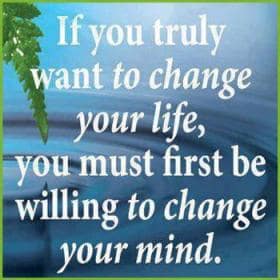
My Career
After dropping out of high school at age 16, I joined the U. S. Marine Corps and was trained in communications, electronics, and armaments. More specifically, I was a radio-telegraph operator working as a communications specialist in air/ground operations and forward air control support to the 1st Marine Division. I was also a top shot and temporarily deployed as a rifle range coach.
Following the Marine Corps, I attended college and received a BA, 2 MAs, and a PhD in Organizational Psychology. I began my professional career as a research and human factors psychologist. First working for the California Department of Mental Hygiene as a research psychologist. In that role, I used my knowledge of electronics and telegraphy to create a unique and innovative approach to training neurologically-handicapped children in basic speech and sound skills. It was a very successful program and found it's way to a global audience.

Following that, I worked in the aerospace industry, briefly working with NASA Astronauts on zero gravity experiments. As the space program began to recede, I found my way back into what is called Industrial/Organizational Psychology or Business Psychology.
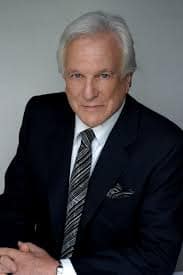




Since teaching was always a great passion for me, I also served as an adjunct faculty member at many Southern California Universities, including California State University – Los Angeles, The University of La Verne, The National Graduate School of Quality Management, UCLA, and Mt. San Antonio College. I’ve taught a broad range of Graduate and Undergraduate courses in Psychology, Organizational Behavior, Organizational Development, Human Resources Management, Quality Management, Physiological Psychology, and The Neuropsychology of Learning Disorders.




Why My Interest in Aging and Elderhood
As I grew into my '60s I was concerned about how I wanted to live the rest of my life. I began to ask myself questions about how I was going to spend my remaining years. Naturally, I was concerned about finances and physical health, but I was just as concerned about my psychological and emotional health. I wanted to become an "elder" and not just grow "older." I needed to discover more about what it was going to be like to grow as an elder.
It was then that I began what I called "My Elderquest." A journey of deep reflection about my life, who I am, where do I fit in, and how I wanted to live out my remaining years. I was on a journey that many millions of people are taking now. This was a multi-year journey during which I wanted to look ahead and try to anticipate what my retirement and my elder years might be like.
It took me a little over five years to discover, experience and resolve many of the issues I was concerned about. During this time I participated in several "quests," or rites-of-passage. Each of which was intended to uncover deeper insights into what it meant to "grow" old, to become an "elder," to discover what it meant to have a new sense of purpose, a new role, a new sense of place in the world.
I explored many questions during this time, including what I call "The Four Questions" - what I often refer to as the "Border Guard Philosophy" because they are the usual questions asked when crossing international borders.
These are very profound questions, when asked and answered in an honest and truthful manner. Try it out!
I wrote about my own quest, and I wanted to share the story of that journey through the publication of my book, MY ELDERQUEST: Crossing the Chasm from Older to Elder.

Bianetics
I conduct most of my work through my company: Bianetics, LLC. Bianetics is an acronym for Biologically Adaptable Cybernetic System. Meaning, we humans have the biological capability to adapt to nearly anything the world imposes on us. We are a cybernetic system – meaning, we are innately capable of “self correcting.”
We believe that people and organizations, like all life forms, seek to follow the Biological Imperative: that is, we seek to create purposeful behavior, to survive on our own terms and to increase our own capacity for independent action. Thus, as we work to make changes in ourselves, and when we purposely construct a transition and life plan, we tend to want to follow the biological imperative, seek to be adaptive, follow cybernetic laws of feedback and try to work and think systemically.
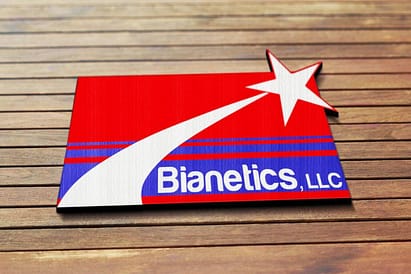
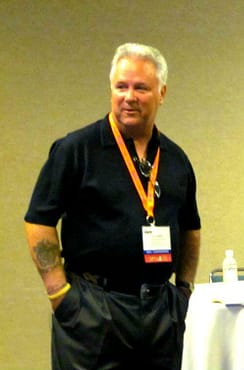
Speaking
I also speak at a number of corporate, professional, community, and other events on relevant topics. If you have an event you'd like me to speak at, please see my Programs page and contact me.
I speak on a number of different topics related to organizational and individual change and effectiveness, including, The ElderQuest, Finding Innovators, Values and Leadership, and Healthy Relationships.
I will customize any of my talks and presentations to your specific needs and requirements.


